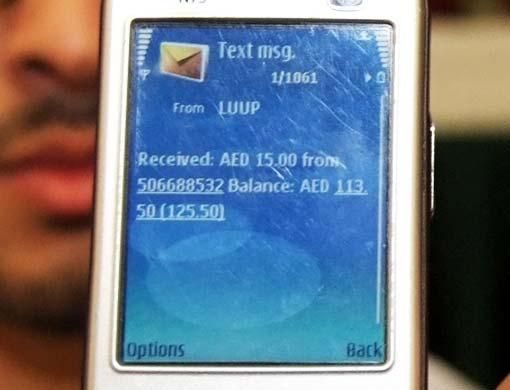Dubai: A host of new banking services designed for use on mobile phones promises to usher in the 'm-commerce' era.
The trend is being led by institutions in the Philippines and other developing nations, leapfrogging traditional banking processes in favour of using the ubiquitous mobile phone.
In the Gulf, several banks and technology firms are following suit, and are preparing to allow customers the ability to remit money, pay utility bills, and transfer mobile air time minutes to others, all via mobile phones.
The National Bank of Dubai and Emirates Bank recently signed agreements with other firms to tap into this growing field.
Emirates Bank is working with California technology consultancy Infospan to create an electronic money transfer service for people who don't hold bank accounts. The bank is targeting labourers as its primary customers and its main product, a stored, rechargeable value card, will allow customers to send and receive funds via ATMs, call centres and text messaging.
NBAD, meanwhile, has two initiatives. It is partnering with LUUP, an m-payment service provider in Europe and the Middle East. The alliance will help NBAD customers make money transfers and payments to any bank, merchant, government utility or person-to-person across the world, the company said. A second service, SMS Money Transfer, is expected to be announced in the coming days. It will allow customers to distribute funds to anyone holding a mobile phone account by calling the NBAD call centre and placing a transfer order.
Innovation
Some of the innovative new service offerings is being developed by telecom operators, which see potential for big profits. etisalat recently partnered with Smart Communications, an m-banking firm in the Philippines, to offer remittances via SMS.
The operator also plans to introduce "contact-less" technology, allowing users to execute day-to-day payments by waving mobile phones near a receiving device at bus stations, retail outlets, and cinemas.
du is also expected to make similar announcements soon. The company declined to comment.
A sticking point in Middle East adoption rates for m-commerce may be the region's low rates of credit card and debit card use. Sagar Tamang, a telecom and IT analyst at Nielsen, a market research firm, said in some cases, m-commerce services requires users to have a bank account as well as a credit or debit card.
Despite the obstacles, the pool of available candidates for m-banking should grow next year, Tamang said, when a new UAE labour law requires workers to set up individual bank accounts.













